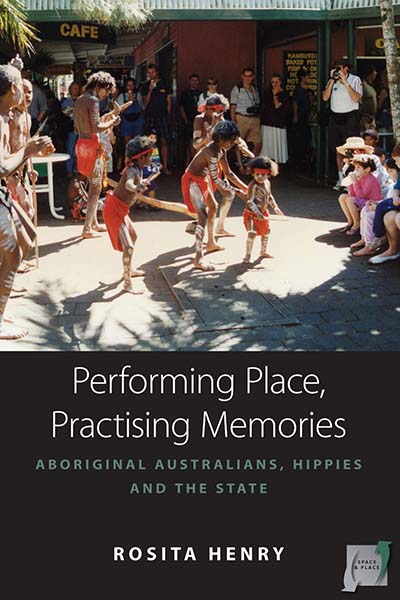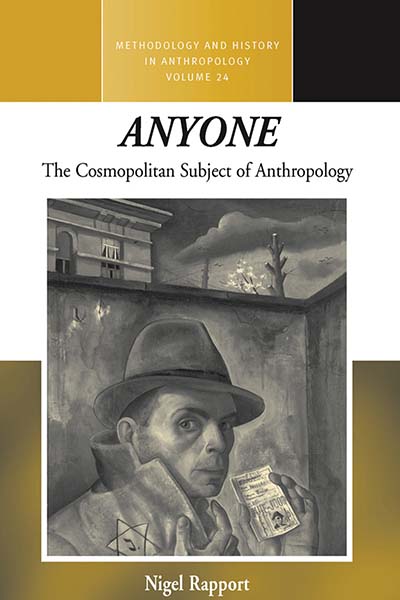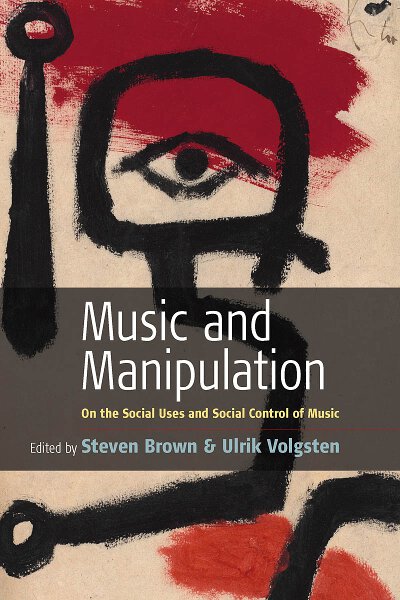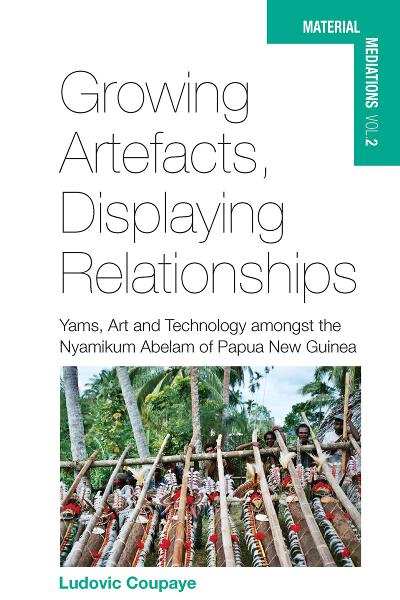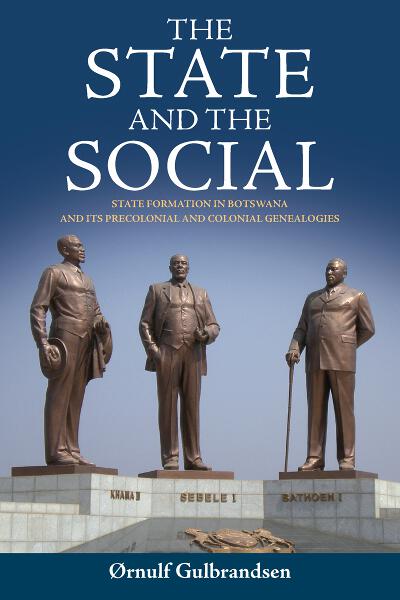
See Related
Anthropology JournalsEmail Newsletters
Sign up for our email newsletters to get customized updates on new Berghahn publications.
The State and the Social
State Formation in Botswana and its Precolonial and Colonial Genealogies
Ørnulf Gulbrandsen
With a Foreword by Bruce Kapferer
364 pages, 9 illus., bibliog., index
ISBN 978-0-85745-297-9 $150.00/£115.00 / Hb / Published (March 2012)
ISBN 978-1-78238-325-3 $39.95/£31.95 / Pb / Published (October 2013)
eISBN 978-1-80758-393-4 eBook
Reviews
“This is a wonderful book rich in ethnography and every bit as rich in careful and considered thought. The book is exemplary in its anthropology and demonstrates the continuing value of an anthropological perspective across the disciplines.” · From the Foreword
“This is a stimulating book, not only for those interested in Botswana or Southern Africa, but also for those concerned with states, elite formation, and ‘development’ more broadly. The reader will enjoy subtle and insightful discussions about ‘chiefship’, the craft of transforming ‘pre-colonial’ hierarchies into a modern state, the limitations of the concept of ‘patrimonialism’, and the necessity of situating agents and institutions within their particular social, political, and economic histories and contemporary contexts. The book’s analysis is a corrective to simplistic oppositions between ‘traditional’ and ‘modern’ ways, institutions, and so forth." · Social Analysis. The International Journal of Social and Cultural Practice
“Gulbrandsen supports his analysis thoroughly and persuasively. In addition, many of his historical and ethnographic examples illuminate particular dynamics of power and social action very effectively... A very important contribution to the study of Botswana, the anthropology of southern Africa, and political anthropology... the overall argument and substantive examples provide enduring importance which will offer much to African Studies specialists and scholars in political and legal anthropology.” · PoLAR: Political and Legal Anthropology Review
“Gulbrandsen’s thorough ethnographic knowledge of Botswana is evident in this conceptually rich analysis of state and social processes that have been critical to state formation and consolidation…The author must be highly commended for a thoroughly researched book, which is an invaluable addition to scholarship on issues of political economy and state formation. Last but not least, an average Motswana would find the book hauntingly introspective.” · African Affairs
“This is an extremely thoughtful book, full of wise saws and instances, the product of careful reflection after more than thirty-five years of observation…It is difficult to do it justice within a single review. Sometimes the book's allusions may be obscure to readers with no prior knowledge of anthropological literature and/or of Botswana, but [it] is essential reading for any scholar seeking deeper understanding of Botswana culture and society.” · Journal of Southern African Studies
“One of the remarkable strengths of this important book is its connecting of these observations with a long-term perspective, tying traditional practices and institutions into the context of a finely grained analysis that does so much more than simply assert the longevity of tradition.” · Africa Spectrum
“The book’s synthesis of existing historical and anthropological scholarship on the state in Botswana alone would constitute a substantial contribution to the study of southern Africa. Gulbrandsen’s astute analysis of the cultural and historical specificity of state formation in Botswana, however, transforms this book into an invaluable resource for scholars of state formation in Africa and beyond.” · Anthropos
“…this is an enjoyable read and a great contribution to the growing corpus of literature on the political economy of Botswana seen from an anthropological perspective.” · Journal of African History
“Gulbrandsen’s book is exemplary. It provides a very rich ethnographic and historical representation of a unique and exceptional state formation in the African context - the relatively democratic and economically successful state formation in Botswana…The book is written in an engaging tone and should be of interest to anyone who is interested in African politics and history. It should be required reading for anyone who thinks they have simple answers for the problems faced by many states in Africa today and how they can be solved.” · The Norwegian Journal of Anthropology
"Ørnulf Gulbrandsen has written a quite magisterial account of state formation in modern Botswana, an African nation-state that has long fascinated scholars, not least because it appears to defy so many stereotypes that circulate about the continent at large. This is the work of someone who has known the country intimately for more than thirty years, someone with rare insight into its past and present, someone who bring the sensibilities of a fine historical anthropologist to explain how it is that a complex dialectic, arising from the encounter between, on one hand, indigenous political and cultural life-ways and, on the other, Western governmental ideas and practices, has yielded a strong, sustainable African polity. Some may argue with Gulbrandsen’s analysis, which is challenging and cogently argued, but there is no doubt that this is a very important work and a major contribution to contemporary African Studies.” · John Comaroff, University of Chicago
“The author demonstrates an admirable knowledge and understanding of a society about which it is not always easy to acquire accurate information. The depth of information is reflected in the basic anthropological data presented here along with the conceptual and theoretical complexity of the work…[It] makes a significant contribution to our understanding of the processes of elite formation, elite relationships with the state, the dynamics of elite cohesion and the manner in which the elite is reproduced over time.” · Treasa Galvin, University of Botswana
Description
Botswana has been portrayed as a major case of exception in Africa—as an oasis of peace and harmony with an enduring parliamentary democracy, blessed with remarkable diamond-driven economic growth. Whereas the “failure” of other states on the continent is often attributed to the prevalence of indigenous political ideas and structures, the author argues that Botswana’s apparent success is not the result of Western ideas and practices of government having replaced indigenous ideas and structures. Rather, the postcolonial state of Botswana is best understood as a unique, complex formation, one that arose dialectically through the meeting of European ideas and practices with the symbolism and hierarchies of authority, rooted in the cosmologies of indigenous polities, and both have become integral to the formation of a strong state with a stable government. Yet there are destabilizing potentialities in progress due to emerging class conflict between all the poor sections of the population and the privileged modern elites born of the expansion of a beef and diamond-driven political economy, in addition to conflicts between dominant Tswana and vast other ethnic groups. These transformations of the modern state are viewed from the long-term perspectives of precolonial and colonial genealogies and the rise of structures of domination, propelled by changing global forces.
Ørnulf Gulbrandsen is Professor of Social Anthropology and has been the Head of the Department of Social Anthropology at the University of Bergen for many years. He has conducted fieldwork in Norway, Botswana and, recently, in Sardinia. He has published extensively in books and international journals, especially on politics/state formation, law/jurisprudence, cosmology/occult practices, evangelizing Christianity, space, industrial relations/trade unions, political economy/labour migration, cultural ecology/land tenure, and kinship/marriage.

